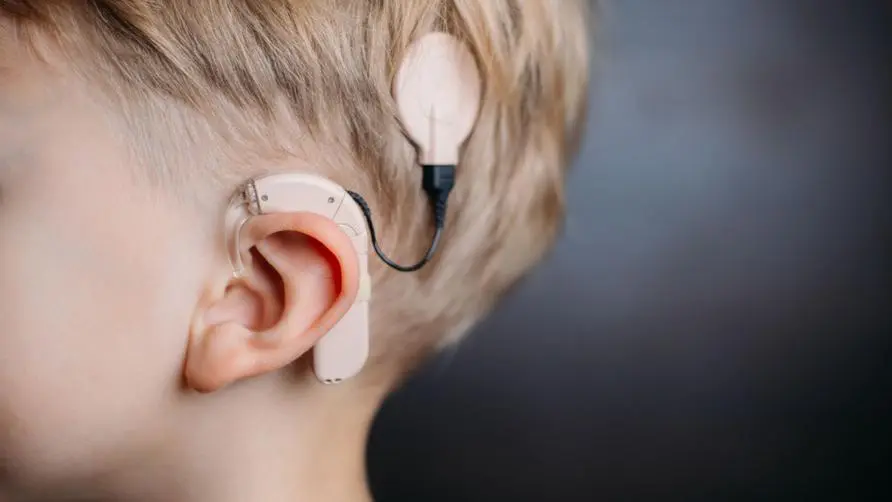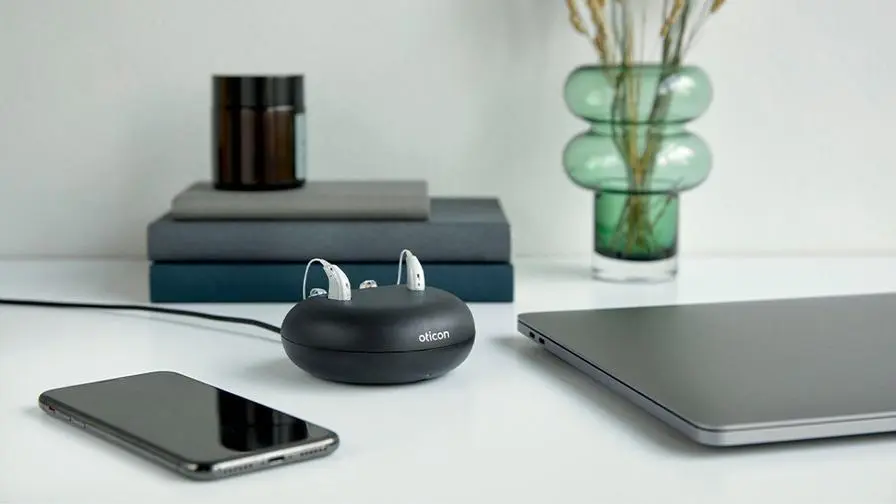Not being able to understand what your colleagues are saying may be due to "late-onset hearing loss"! Who should consider artificial electronic ear implants?

Be careful if you don’t understand what your colleagues are saying! Who needs artificial electronic ears?
If you suddenly have trouble hearing or understanding the words of your colleagues and people around you at work, you should be careful about “late-onset hearing loss”. Dr. Huang Zhongfeng from the Department of Otorhinolaryngology at Kaohsiung Chang Gung Memorial Hospital pointed out that about half of severe hearing loss in Taiwan is related to genetic genes. In addition to childhood cases detected in preschool, some are late-onset hearing loss that gradually occurs between the ages of 30 and 50. . If you still have more than 50% difficulty in speech understanding and communication after wearing a hearing aid, you can evaluate whether to wear an artificial electronic ear.
According to Taiwan Ministry of Health and Welfare, artificial electronic ears are divided into two parts. The inner part is the receiver and electrodes, which must be surgically implanted by a doctor. The outer part contains the coil and sound processor, which must be turned on after the surgery with the help of an audiologist. Its working principle is to receive sound waves through a microphone suspended on a sound processor behind the ear, transmit them to the circuits in the cochlea of the inner ear, and transmit the signals to the auditory nerve to produce hearing.
According to the Taiwan Otology Society, the indications for artificial electronic ears are mainly divided into three categories:
Before the age of 2 or weighing more than 8 kilograms, with severe bilateral hearing loss greater than 90 dB, and no progress after 3 months of hearing training after wearing a hearing aid.
Adolescents aged 2-18 years old, with severe hearing loss greater than 70dB in both exposed ears, no progress in speech recognition after 3 months of wearing hearing aids, or speech recognition lower than 50% after hearing aid correction.
Adults over 18 years old, with severe hearing loss greater than 70dB in both bare ears, hearing threshold > 45dB after wearing a hearing aid, or speech recognition score below 50% after wearing a hearing aid.
Artificial electronic ear implant standards? Does Taiwan’s concept of hearing loss treatment need to be updated?
Dr. Huang Zhongfeng pointed out that in the past, Taiwan’s indication range for artificial electronic ears mainly used hearing loss decibels as the standard. In the early days, it needed to be greater than 90 decibels. Nowadays, it is mostly based on 70 decibels. However, referring to the data of advanced countries such as Germany and the United States, it has been pointed out that as long as the hearing loss is greater than 40 to 55 decibels, the evaluation of wearing artificial electronic ears can be considered.
Dr. Huang Zhongfeng said that the focus of hearing improvement is to help patients restore their social communication skills. If your language cognitive function does not improve significantly after wearing a hearing aid, and you cannot understand more than 50% of other people’s language content, you should consider wearing an artificial electronic ear. However, due to cost and subsidy issues, the prevalence rate for artificial electronic ears is only 3-5% of the population. For many people with hearing loss, it may not only affect their daily lives, but may even leave the workplace due to hearing loss and cannot continue to contribute. force, causing social losses.
Increase the popularity of artificial electronic ears to help more hearing-impaired people contribute to society
As of the second quarter of 2022, there are approximately 20,754 people in Taiwan with severe or extremely severe hearing impairment. Compared with the number of people with artificial electronic ear implants, the proportion is still significantly low. Although the National Health Insurance has included children with severe hearing loss under the age of 18 in the National Health Insurance Subsidy since 2017, there is a gap in the social subsidy policy for adult electronic ears, which affects the willingness of adults with severe hearing loss to take action.
Dr. Huang Zhongfeng said that taking neighboring countries Japan and South Korea as an example, it is recommended to implant electronic ears as long as the PTA of the bilateral bare ears is greater than 70 decibels and the speech recognition score is less than 50% after wearing hearing aids for three months. Clinically, many adults can return to 90% of their normal lives in about 2-3 months after having electronic ear implants, which is a very meaningful investment for individuals and society.
Observing the current global audiology trends, we are moving towards optimizing the age and hearing loss range standards for cochlear implant recipients. We look forward to the opportunity for Taiwan’s medical community and supervisors to discuss together so that more adults who are unable to use their knowledge due to hearing problems can return to the workplace. Make more contributions to society.
Further reading:





